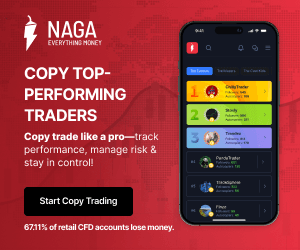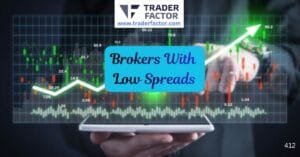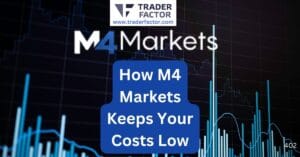In Forex trading, a spread is the difference between the bid (buy) and ask (sell) prices of a currency pair, serving as a key cost component for traders. This gap represents the broker’s fee for facilitating the trade, directly impacting the overall expense of transactions.
Understanding spreads is crucial, as they affect a trader’s ability to profit; tighter spreads mean lower costs and potentially higher returns.
For beginners exploring the Forex market, grasping the concept of spreads helps in selecting brokers and crafting effective trading strategies, ensuring they are well-equipped to navigate the dynamic world of currency trading.
Table of Contents
ToggleWhat Do Spreads Mean In Forex
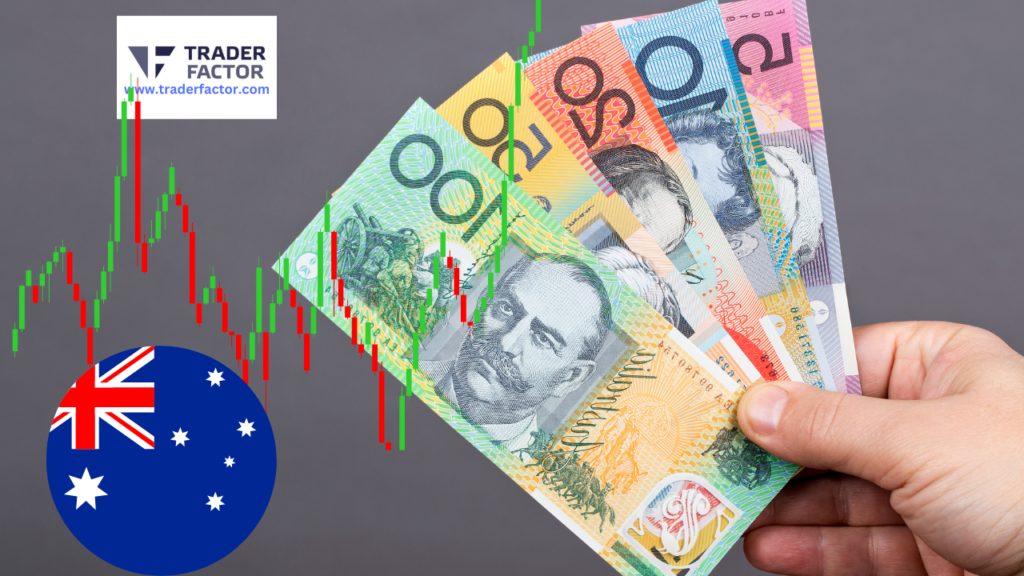
In forex trading, a spread refers to the difference between a currency pair’s bid/ask price. The bid price is the price at which a trader is willing to buy a currency, while the ask price is the price at which a trader is willing to sell a currency.
What is a spread?
The spread is typically expressed in pips, which is the smallest unit of price movement in the forex market.
For example, if the bid price for the EUR/USD currency pair is 1.1750 and the ask price is 1.1753, the spread would be 3 pips. This means that a trader would have to pay an additional 3 pips above the current market pricing in order to buy the EUR/USD pair.

On the other hand, a trader who wants to sell the EUR/USD pair would receive 3 pips less than the current market exchange rate.
The spread size can vary depending on several factors, including the liquidity of the currency pair, the time of day, and the broker or market maker offering the quotes.
In short, more liquid currency pairs tend to have smaller spreads, while less liquid pairs tend to have larger spreads.
What Types of Spreads are in Forex?
There are fixed and variable spreads in forex.
What are Fixed Spreads in Forex?
Fixed spreads maintain this difference at a constant rate, regardless of market conditions.
Role of Fixed Spreads in Forex Trading
Fixed spreads are preferred by traders who value cost certainty, aiding in the planning and execution of trading strategies with predictable costs.
Pros of Fixed Spreads
- Cost Predictability: Enables accurate forecasting of trading costs, assisting in budgeting and trade planning.
- Stable Trading Environment: Offers stability during market volatility, preventing unexpected cost increases.
- Easier Strategy Formulation: Allows for strategy development without frequent adjustments for spread changes.
Cons of Fixed Spreads
- Potentially Higher Costs: In stable markets, variable spreads can be narrower, offering potentially lower costs.
- Limited Availability: Not all brokers offer fixed spreads, and availability might be limited to certain currency pairs.
- Potential for Requotes: In volatile markets, trades might be requoted, leading to executions at different prices than expected.
Fixed spreads provide predictability and stability for traders, especially in volatile markets, but it’s important to weigh the potential for higher costs and limited availability.
Variable Spread
A variable spread (Floating Spread), on the other hand, is a spread that can change based on market conditions. This means that the difference between a currency pair’s bid and ask price can fluctuate over time.
Variable spreads tend to be wider during times of high market volatility or low liquidity and narrower during times of low volatility or high liquidity.
What are Variable Spreads in Forex?
Variable spreads fluctuate based on market conditions such as volatility and liquidity. Unlike fixed spreads, which remain constant, variable spreads can widen or narrow depending on market dynamics.
How Variable Spreads Differ from Fixed Spreads
- Flexibility vs. Stability: Variable spreads offer flexibility as they adjust with market conditions, potentially leading to lower costs during stable periods. Fixed spreads remain constant regardless of market changes.
- Cost Structure: With variable spreads, the cost is not fixed, allowing traders to take advantage of narrower spreads when markets are calm. Fixed spreads incorporate broker fees within the spread, maintaining a stable cost structure.
Role of Variable Spreads in Forex Trading
Variable spreads play a significant role for traders who are comfortable with fluctuating costs and aim to capitalize on stable market conditions where spreads can be lower.
Pros of Variable Spreads
- Potential Cost Savings: During periods of low market volatility, variable spreads can be narrower than fixed spreads, reducing trading costs.
- Market-Responsive Pricing: Traders benefit from spreads that reflect current market conditions, possibly leading to more favorable trading opportunities.
- Greater Broker Flexibility: Brokers can offer competitive pricing, attracting traders seeking low-cost trading environments.
Cons of Variable Spreads
- Cost Uncertainty: During high volatility, spreads can widen significantly, increasing trading costs unexpectedly.
- Market Dependency: Trading costs are directly affected by market conditions, requiring traders to constantly monitor the market to avoid unfavorable spread changes.
- Potential for Slippage: In fast-moving markets, price slippage can occur, where the trade is executed at a less favorable price than expected.
Variable spreads provide flexibility and the potential for cost savings in stable markets, but traders must be prepared for the unpredictability associated with market volatility and the possibility of increased trading costs.
Fixed vs Variable Spreads: Which is Better?
Some forex brokers offer fixed spreads, while others offer variable spreads. Ultimately, the choice between fixed and variable spreads depends on individual trading strategies, market conditions, and personal preferences.
Fixed spreads may be more predictable, but they may also be wider than variable spreads during times of low volatility. Conversely, variable spreads may be more unpredictable, but they may also narrower during low volatility.
- Stability vs. Variability: Fixed spreads offer a stable cost structure, whereas variable spreads fluctuate with market volatility and liquidity.
- Broker Fees: Fixed spreads incorporate broker fees within the spread, ensuring transparency. Variable spreads may have additional commissions or fees.
Open a demo account with Exante Forex Broker and access over 400,000 instruments
How Is Spread Calculated In The Forex Market?
Knowing how to calculate spread in the forex market is an important skill for any trader. Traders can determine spread by subtracting the ask price from the bid price of a particular currency pair, as this will give them their exact spread.
Although the spread can vary depending on the currency pair being traded, it’s usually quite small.
For example, for major pairs such as EUR/USD, it could range from 0.0 pip to 1.5 pips – a tiny fee when compared to other trading markets.
When using non-dealing desk (NDD) broker, it does not act as a market maker and does not take the opposite side of a trade.
Instead, NDD brokers provide access to the interbank market through STP (Straight Through Processing), where traders can buy and sell currencies directly with other market participants.
Hence, the spread is typically wider than with dealing desk brokers who utilize ECN (Electronic Communications Network), as NDD brokers do not have the ability to set the spread themselves.
They just pass on the spread they receive from the interbank market to their clients.
What Does A Forex Spread Tell Traders?
Traders use Forex spreads to measure the difference between the bid and ask prices in a currency pair.
This measurement is used to determine if a currency pair is expensive or inexpensive based on the cost of buying or selling it.

Forex spreads indicate the liquidity of a currency pair, as well as its volatility. They can also be used as an indicator of market sentiment and help traders decide when to open and close trades.
By understanding what a forex spread tells traders, you can better identify opportunities for profitability in your trading activities.
What Determines Spread In Forex?
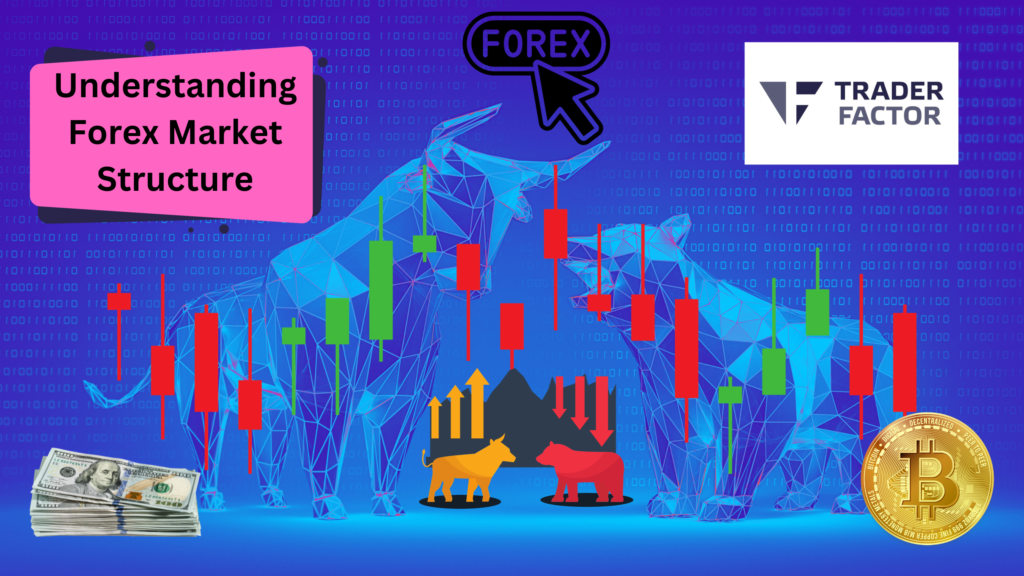
Several factors can influence spread in the forex market:
- Liquidity: More liquid Currency pairs tend to have smaller spreads, as more buyers and sellers are willing to transact at any given time. Less liquid pairs tend to have larger spreads, as there are fewer participants in the market.
- Volatility: During times of high market volatility, spreads may be wider as the risk of price movements increases. During times of low volatility, spreads may be narrower.
- Time of day: The spread may also vary depending on the time of day. For example, spreads may be wider during times of low liquidity, such as during the weekend or overnight, when the forex market is closed.
- Broker or market maker: The spread can also be influenced by the broker or market maker offering the quotes. Some brokers may offer tighter spreads, while others may offer wider spreads.
- Transaction cost: The spread can also be influenced by the cost of trading, including the cost of executing trades, financing, and any other fees associated with trading.
- Economic and political events: Economic and political events can also impact the spread. For example, if a significant news event or policy change affects the currency market, it can lead to increased volatility and wider spreads.
Here’s the expanded content with structured headings:
How External Factors Can Impact Forex Spreads
Some external occurrences can significantly influence financial markets, including the Forex market. These events aren’t directly related to the internal dynamics of the market but can cause substantial shifts in market conditions, leading to increased volatility and affecting Forex spreads.
Examples External Events
Geopolitical Tensions
Conflicts or political instability in a country can cause uncertainty in the currency markets. For instance, tensions between major economies can lead to risk aversion among investors, resulting in wider spreads due to the increased perceived risk.
Natural Disasters
Events such as earthquakes, hurricanes, or tsunamis can disrupt economic activity and impact the currencies of affected regions. The sudden uncertainty and potential economic repercussions often lead to increased volatility and wider spreads.
Major Economic Announcements
Announcements like interest rate changes, unemployment reports, or GDP figures can have an immediate impact on currency valuations. The anticipation and release of these data points can lead to rapid market movements and temporarily widened spreads as traders react to new information.
Impact on Forex Spreads
During exogenous events, spreads can widen significantly due to increased volatility. This happens because brokers adjust spreads to manage risk and protect against the rapid price changes that such events can trigger. Wider spreads mean higher trading costs for traders, affecting the profitability of trades.
Strategies to Mitigate Risks
Stay Informed
Keeping abreast of global news and economic calendars can help traders anticipate potential exogenous events. Awareness allows traders to adjust their strategies or avoid trading during particularly volatile periods.
Use Stop-Loss Orders
Implementing stop-loss orders can help limit potential losses during unexpected market movements. These orders automatically close a position at a predetermined price, providing a safety net against adverse movements caused by exogenous events.
Diversification
By diversifying their trading portfolios across different currency pairs and asset classes, traders can reduce the impact of a single event on their overall performance.
Choose the Right Broker
Opt for a broker known for fair practices and competitive spreads, even during volatile periods. This can help minimize trading costs when market conditions are unpredictable.
What is Scalping As A Spread Strategy?

Scalping is a trading strategy that involves making multiple trades over a short period, intending to profit from small price movements.
In the context of spread trading, scalping can refer to a strategy where a trader aims to make a margin from a slight difference between the bid and ask price of a currency pair.
To scalp the spread, a trader may open and close positions very quickly, often within seconds or minutes.
The trader may aim to profit from small changes in the spread, either by buying at the bid price and selling at the ask price or by selling at the bid price and buying at the ask price.
Scalping strategies can be risky, as they rely on executing trades quickly and accurately to profit from small price movements.
Scalping can also be more difficult in a low-volatility market, as the potential for price movement may be limited.

Take Away: What are Spreads in Trading
Overall, understanding the spread is an essential part of forex trading, as it can impact a trader’s cost and potential profitability. The spread is one of the main transaction costs of trading in the forex market.
It represents the difference between the price at which a trader can buy a currency and the price at which they can sell it.
By understanding the potential impact of the spread on a trade, a trader can better manage their risk and adjust their trading strategy accordingly. It can also be a factor to consider when selecting a forex broker for transparency in the execution of spreads.
Some brokers may offer fixed spreads, while others may offer variable spreads.
Frequently Asked Questions
What is the difference between fixed and variable spreads?
Fixed spreads remain constant regardless of market conditions, providing traders with predictability in their trading costs. Variable spreads, on the other hand, fluctuate based on market volatility and liquidity, potentially offering lower costs during stable market conditions but higher spreads during volatile periods.
How do spreads in currency trading affect long-term trading?
For long-term traders, the impact of spreads can be less significant compared to short-term traders, as trades are held for longer periods and are less frequent. However, even small differences in spreads can affect the overall profitability of a long-term trading strategy, especially if multiple positions are opened over time.
What role does technology play in determining spreads?
Technology significantly influences spreads by enabling brokers to access real-time market data, execute trades quickly, and manage risk efficiently. Advanced trading platforms can offer tighter spreads through improved price transparency and faster execution, benefiting traders with more competitive pricing.
Are spreads different for major and minor currency pairs?
Yes, spreads are typically narrower for major currency pairs like EUR/USD or USD/JPY due to higher liquidity and trading volume. Minor and exotic currency pairs tend to have wider spreads because of lower liquidity and increased risk for brokers.
Can brokers manipulate spreads?
While reputable brokers adhere to regulatory standards and operate transparently, some brokers may adjust spreads to their advantage, especially in volatile markets. Traders should choose well-regulated brokers and monitor spreads closely to ensure fair trading conditions.
How can I compare spreads across different brokers?
To compare spreads across brokers, traders can monitor bid-ask prices for the same currency pair during similar market conditions. Many brokers also offer demo accounts, which allow traders to test spreads and trading conditions without risking real capital.
Do spreads differ between account types?
Yes, brokers often offer different account types with varying spread structures. For instance, ECN (Electronic Communication Network) accounts typically provide access to tighter spreads with a commission per trade, while standard accounts may have wider spreads with no additional commission.
How do economic events impact Forex spreads?
Economic events, such as interest rate announcements or geopolitical events, can cause increased market volatility, leading to wider spreads. Traders should be cautious during such periods as the increased spreads can impact transaction costs and trading strategy effectiveness.
Get started today by reading our the following in the Forex Education Section
- Beginners Guides and Tips For Forex Trading
- Read A Beginners Guide To Forex Trading
- Mistakes Most Beginner Forex Traders Make and How To Avoid Them
- A 2023 Beginners Guide To Buying And Selling Currencies
- Can You Make Money Trading Forex In 2022 and 2023: Here Are The Facts
- Popular Forex Trading Terms You Must To Know For 2023 – Traderfactor
Disclaimer:
All information has been prepared by TraderFactor or partners. The information does not contain a record of TraderFactor or partner’s prices or an offer of or solicitation for a transaction in any financial instrument. No representation or warranty is given as to the accuracy or completeness of this information. Any material provided does not have regard to the specific investment objective and financial situation of any person who may read it. Past performance is not a reliable indicator of future performance.





